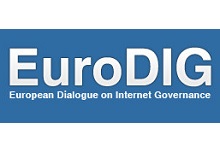Transforming skills to meet innovation challenges
20 Jun 2019 11:00h - 12:30h
Event report
[Read more session reports and live updates from the EuroDig 2019]
The workshop was moderated by Ms Olga Kyryliuk (Founder, the Influencer Platform) and Ms Oliana Sula (Lecturer, University Aleksander Moisiu Durres). The session addressed new learning opportunities aimed at tackling technological challenges.
Ms Catherine Garcia-Van Hoogstraten (Expert, Data Governance, Technology, Cybersecurity, Public Sector Digitalisation, THUAS) stressed that universities should consider implementing projects that can solve practical and emerging social issues, including cybersecurity challenges at the local and international level. Capacity building should encompass private-public partnerships (PPPs) in order to tackle the cybersecurity workforce shortage. Undersupply and under-skilling are interconnected aspects of the current European labour market and should be resolved altogether, and not as separate problems.
Ms Sofia Rasgado (Co-ordinator, Portuguese Safer Internet Centre) underlined that public initiatives have been created in Portugal to enhance digital competences and tackle challenges posed by technology to citizen rights and employment. The project INcoDe.2030 aims at improving digital literacy by investing in digital training. Investment in digital literacy includes five general action lines: inclusion (of citizens over 50 years old), education (primary and secondary schools), qualification (unemployed citizens), specialisation (masters’ degree), and research (PhD programmes and research funding).
Mr Tey El-Rjula (Co-founder & CEO, Tykn) believes that digital literacy can improve vulnerable people’s lives. Bitcoins, for instance, have the potential to include refugees in the economic systems. Digital identity allows refugees to have access to services that are denied by public authorities and traditional analogical systems. The challenge is that many refugees have no digital skills. Humanitarian groups, public authorities, and the private sector should invest in the digital training of vulnerable people to improve their lives.
Mr Thijs van Reekum (Policy Advisor, Netherlands Ministry of Economic Affairs) stated that Dutch public authorities have recognised two challenges to transform skills to meet innovation challenges, including the need for new types of experts and the lack of understanding on how digitalisation will change the labour market. To face these challenges, the Netherlands fosters PPPs to address digital literacy and have included the topic in primary and secondary education.
All speakers agreed that our current digital-driven society requires new learning methods for building the necessary skills to meet technological innovation challenges. Policymakers, businesses, and civil society shall co-operate to create a sustainable working environment.
By Ana Maria Corrêa
Related topics
Related event

